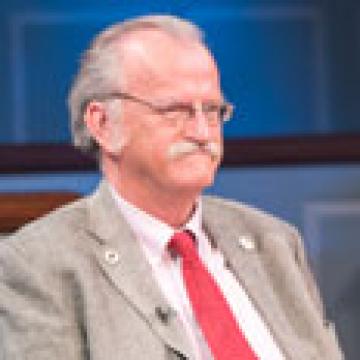Thomas Jefferson: Life After the Presidency
With the inauguration of his handpicked successor, James Madison, Thomas Jefferson retired to his Virginia plantation home, Monticello. The former President was happy to be free from executive duties and eager to satisfy his boundless curiosity for life. In retirement, Jefferson pursued science and natural history through research, experimentation, and invention. He continued in his post as the elected president of the American Philosophical Society until 1815. He tackled Plato's Republic in the original Greek as well as Greek versions of the Bible. All the while, he kept up an extensive private correspondence with friends and acquaintances all over the world. Nothing, however, attracted Jefferson's attention more than his pet project, the University of Virginia. Jefferson designed all of its campus buildings, set up its curriculum, selected its faculty, and joyfully nurtured it into existence. He proudly thought his work on the university a fitting conclusion to his life of public service.
Even as he struggled to make ends meet, Jefferson enjoyed his popularity until becoming ill in early 1826. He had sold much of his private library to the federal government to replace the books burned by the British when they occupied Washington, D.C., during the War of 1812, but his expenses were large. The onetime master of over 150 slaves still owned many of them although most had been used as collateral for borrowed money. Indeed, at his death, Jefferson freed no slaves partly because he worried about what would happen to them as free people but mostly because they had been mortgaged to his creditors. Jefferson's debts reflected his often conspicuous lifestyle. He loved to entertain his guests with fine wine and foods. Monticello frequently overflowed with guests; sometimes as many as fifty people stayed the night.
Racked with pain from rheumatism and an enlarged prostate, Jefferson could barely move when invited to attend the celebration of the 1826 Fourth of July festivities in Washington, D.C. He and John Adams, who was also alive but too ill to attend, were to be the honored guests on the fiftieth anniversary of the presentation of the Declaration of Independence by the revolutionary Continental Congress. Barely conscious, Jefferson lapsed into a coma and died, perhaps willfully, after hearing from his doctor the whispered words that he had lived until the Fourth. Adams died the same day.
